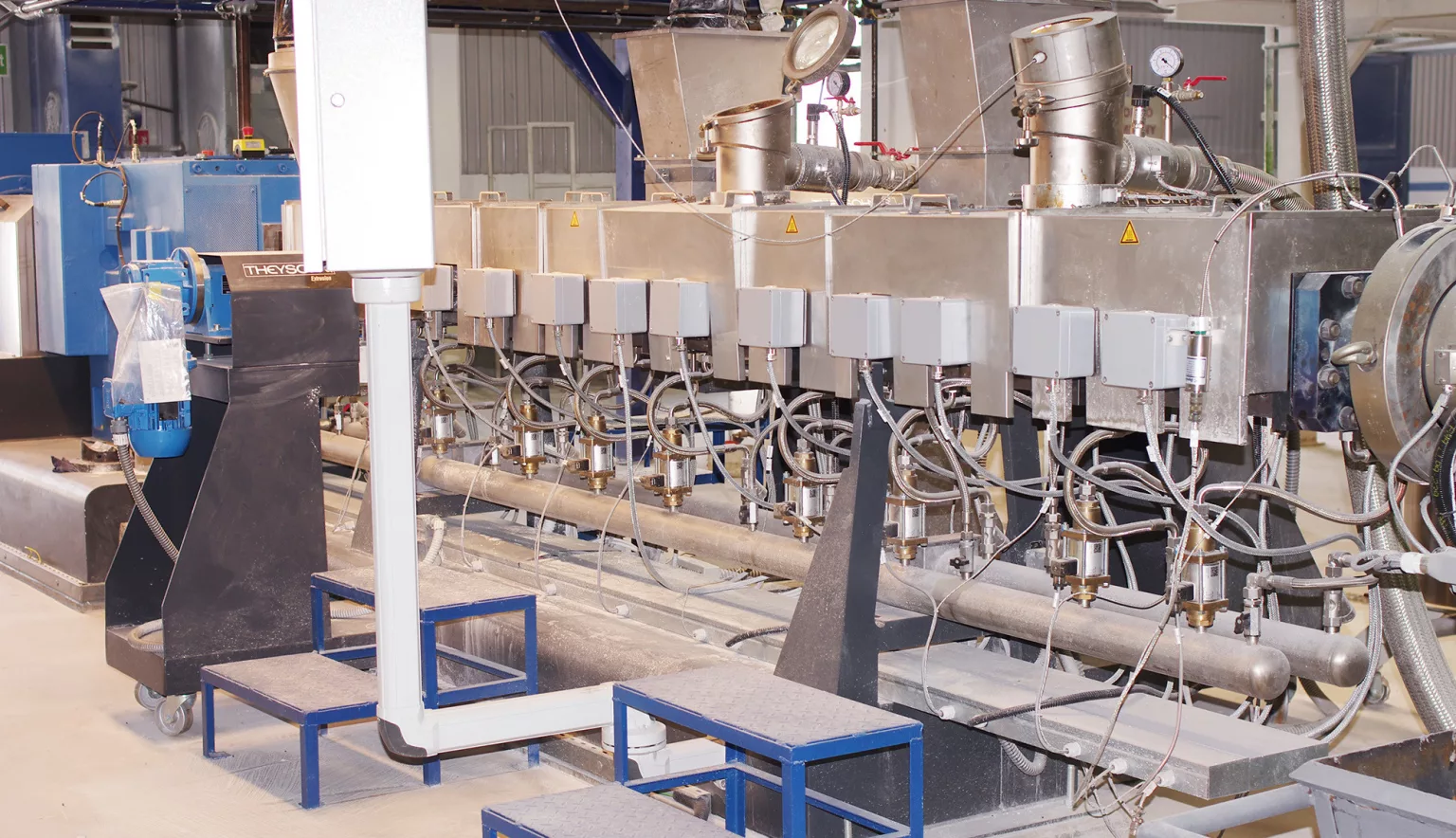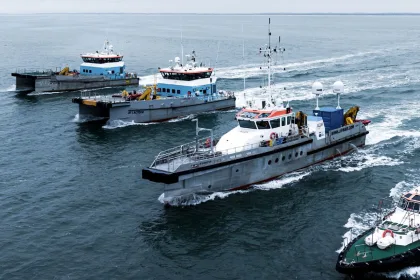Hungary’s Inno-Comp is on a mission to become the region’s most prolific producer of PP compounds, continuing its work as a vital supplier to manufacturers serving a range of industries.
INTRODUCTION
Polypropylene – an unassuming thermoplastic polymer to many, but one that is worth tens of billions of dollars.
Also referred to as PP, polypropylene supports a huge variety of applications, from packaging of consumer products to plastic parts for the automotive industry.
We come into contact with it every day. Whether it be from using our household appliances, electrical goods or DIY tools, all of these contain some form of PP compound, a reality which translates into a projected market value of $28.2 billion by 2025.
This represents an average market growth of 7.6 percent a year, making PP compounds the second largest polymer business in the world and responsible for 25 percent of all polymer demand.
In Europe, Hungary’s Inno-Comp is seeking to ride on this wave of momentum.
A producer of PP and other speciality compounds for the automotive industry, household and electrical goods, and pipes, fittings and sheets, the company was formed as the first integrated polypropylene compounding business in Central Eastern Europe in 1999.
BUILT ON A VISION
Günther Wenth is Inno-Comp’s owner, building the business out of a joint venture with Hungarian petrochemical company TVK, now known as MOL Petrolkémia.
“We set up with a vision of being the largest PP compounding company in the region,” he recalls, “and the first real breakthrough came in 2001 when we secured our first big contract with an OEM.”
In the same year TVK sold its share back to the business, but this did not alter Wenth and Inno-Comp’s ambition.
“In a management-buy-out, Inno-Comp was privatised and continues to be a private company,” Wenth continues. “From that moment onwards, the organisation invested into new lines and enlarged its business.”
Inno-Comp expanded step by step, gaining market share steadily and expanding operations into Slovakia in 2005 and the Czech Republic in 2008 with the opening of a new plant.
While the financial crash may have struck in 2008, the company continued to grow and last year saw 30,000 tonnes of production capacity added at both its Hungarian plant in Tiszaújváros (east of Budapest) and its Czech facility in Litvínov (north of Prague).
“In the past few years, Inno-Comp has shifted from a commodity compound supplier to specialties, and the expansion means we can keep up with the increasing compound demands of the automotive, household and electrical industries,” Wenth adds.
POLYMER PARTNER
Asked what lies behind Inno-Comp’s continuous growth story of the past decade, Wenth is quick to point out its approach to client relationships.
“I believe our major strength is in partnership,” he says. “We offer a solid transparent supply structure and our clients can trust our stable product quality. During our investments with customers we always pay special attention to maintaining our flexibility and fast reaction time.”
From 25-kilo bags to 25-tonne bulk orders, the company is able to cater to almost any demand in volume.
“We also believe in communication,” Wenth continues. “During several years of cooperation with our partners, there are conflicts of interest, but if we talk to each other, a solution can almost always be found. A fast decision-making process within the company having a flat organisation structure is very much supportive.”
This same collaborative approach is taken in regard to Inno-Comp’s supply chain network, established and built on long-term partnerships.
Quality trumps price in the eyes of Wenth, who says that losing a customer because of a cheap, unreliable supplier is a far costlier exercise.
This also rings true when it comes to product development and innovation, a vital part of Inno-Comp’s business and one which receives substantial backing, evidenced in its vast and ever evolving product portfolio.
“Continuous product development is an incremental part of our life, a key factor of our success over the last 20 years,” Wenth says. “To stay ahead in the market, we have to focus efforts on development and always look for new solutions and better materials, which also relies on supplier innovation.
“We can state that most of the major characteristics of a PP compound are based on the raw material, but compounding technology adds a lot to the final performance of the product. The real fine-tuning of our material is done in the production phase, where during these 20 years we have gained a lot of experience and made a several innovative breakthroughs.”
SAFEGUARDING THE FUTURE
Such breakthroughs often help Inno-Comp to become a more sustainable enterprise.
Wenth sees sustainability at the company in two major subcategories, the first being recycling and the drive to cut down on single-use plastics. Responding to this, the firm aims to replace at least 20 percent of its raw PP needs with recycled material, a scheme which is being delivered by a joint venture activity.
The second strand involves using bio-based materials for the likes of fillers and resins which can be used in its products.
Inno-Comp’s drive to become more responsible also involves work with surrounding communities.
Wenth adds: “Charity and social responsibility is an important role of Inno-Comp. The company is made of people and people have to be proud of their workplace.
“Our main focus are the towns where we work. We sponsor cultural and sporting events and schools, like the music school in Tiszaújváros or the ice hockey team of Litvinov. We have also supported healthcare and other schemes and recently received acknowledgement from the community of Tiszaújváros for our social activities in the city.”
GOING GLOBAL
As well as continuing to support its surrounding communities in Hungary and the Czech Republic, Wenth outlines Inno-Comp’s vision to transform into a truly global supplier partner for its clients.
Asked what his priorities are for 2019 and beyond, he concludes: “We plan to open sites outside of Europe to meet these expectations.
“We would like to grow, but still keep our main competences. This will be the most difficult job as the complexity of our products and the production will increase as the requirements of our clients evolve.
“What makes the challenge exciting is the development work. Given the requirements are always increasing, industry players are forever allowing us the opportunity to innovate.”































